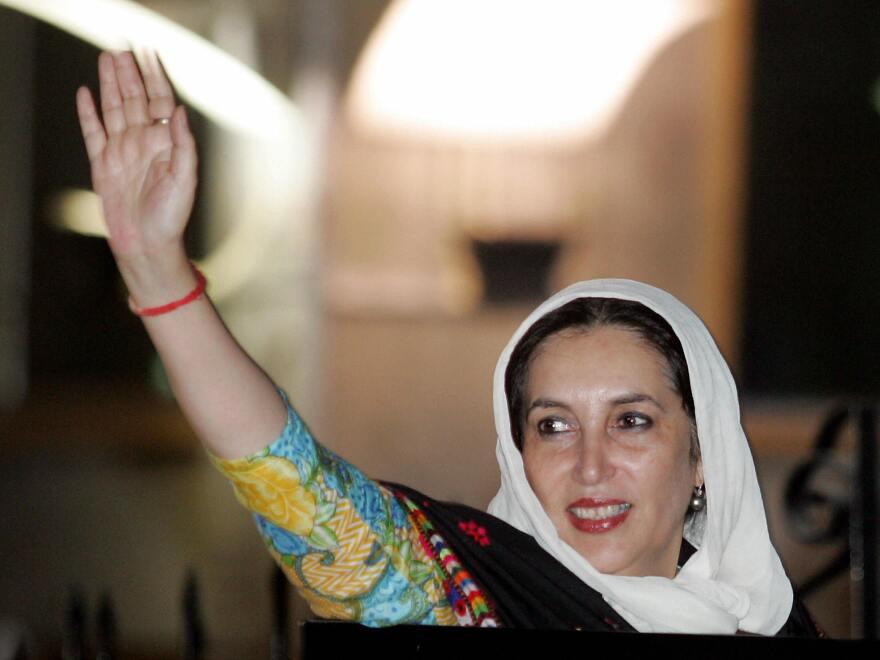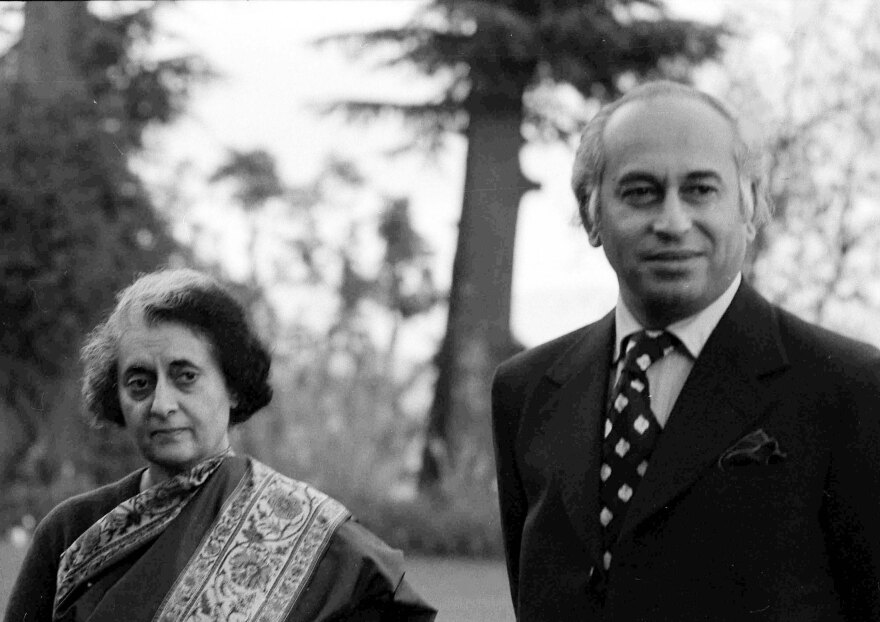His grandfather was hanged by a military dictator. His mother was assassinated. One of his uncles was slain by the police. Another died in a mysterious poisoning.
His father spent eight years in jail, yet later served a full term as president of Pakistan.
The Bhutto family history is a roller coaster ride, veering from prison, exile and corruption scandals to wealth, fame and power.
So it's reasonable to wonder why the 25-year-old son of former Prime Minister Benazir Bhutto wants to step aboard that roller coaster, by venturing into the perilous, hair-raising world of politics in Pakistan.
Yet that is what Bilawal Bhutto Zardari is doing.
His political launch as heir to the Bhutto dynasty is gathering momentum. He stepped into the spotlight this past weekend, as host of a cultural festival in his family's political heartland, the southern province of Sindh.

A Coming-Out Party
The backdrop could hardly have been more photogenic. The Sindh festival's opening ceremony took place on a stage in front of an ancient archaeological site, a mound of ruins from a civilization that sprang up around the Indus River Valley more than 5,000 years ago. The place is called Moenjodaro, or the Mound of the Dead.
Thus, the Old World provided a launching pad for the career of a young man, eager to guide Pakistan into a new age.
Giant spotlights roved the night sky. The dust-caked ancient ruins glowed beneath the glare of shockingly bright red, green and purple lights. Thumping music — old and new — echoed across the fields.
Among the 500 or so invited guests were the top brass from the Bhuttos' Pakistan People's Party, including at least two former prime ministers; a multitude of policemen and security guards; and a small, cheerful, group of Bhutto Zardari's friends from his Oxford University days.
Bhutto Zardari arrived in a big convoy of black cars and wagonloads of armed police. He is a tall and elegant man, with the poised air of royalty. In his face, you can see his mother's looks.
Moenjodaro is deep in Bhutto country. The family mausoleum and ancestral home are only a few dozen miles away.
Constant Security Concerns
Yet, even here, security is clearly a major concern: Bhutto Zardari strode off to inspect the display tents at such speed that his accompanying shoal of armed security men, photographers and party aides struggled to keep up. He was finally stopped in his tracks when he reached the Sindh Police tent, and the band, in gold and tartan, opened up with its pipes and drums.

If they are to succeed at the ballot box, aspiring politicians everywhere must master the art of dealing with the media. Bhutto Zardari has until recently generally avoided publicity (though he is on Twitter).
Shortly before the festival's opening ceremony, he sat down to give some of his first one-on-one interviews to a handful of international correspondents, including me. Black-clad cops with Kalashnikovs were posted in Moenjodaro's gardens, scanning the horizon.
He was articulate, and in the circumstances, remarkably affable, as he spelled out his plans.
"It's time for me to start taking on more responsibility," Bhutto Zardari explained. "What that means is that I will be working very closely with the party, and focusing on party politics, on working with the grass roots of our party across the country — rejuvenating, modernizing."
I asked if, given his family history, he felt frightened about stepping into public life.
"No. Fear doesn't run in my genes, " he replied. "It's not a component. Yes, we have suffered assassinations. But it is those assassinations that drive me."
He continued: "It is the assassination of my mother that drives me. The very forces that people are scared of in this country assassinated my mother, so I am not scared of them. I want to defeat them."
I ask what his mother would have thought of his decision to join the political fray.
"She wouldn't have stopped me coming into politics," he said. "She'd just have preferred that I completed higher education, went on to do more education, got a job, earned a living, started a family. And then, if I was interested in politics, that would be a field open to me as well."
It's widely believed in Pakistan that the assassination of Benazir Bhutto, in 2007, was masterminded by the Pakistani Taliban. However, the country's former military ruler, Pervez Musharraf, was indicted last year on the grounds that he failed to protect her.
At present, Pakistan's prime minister, Nawaz Sharif, is pursuing peace negotiations with the militants in the hope of ending a conflict that's killed tens of thousands of people in the past seven years.
Sharif says he wants to give peace talks one last chance. The government and the Taliban have appointed negotiating teams, but the efforts of those teams to meet have so far been thwarted by delays and squabbles.
Bhutto Zardari believes this approach is wrong. In fact, he's emerging as one of Pakistan's most prominent advocates of the use of military force against the Taliban before negotiations can be held.
"You must break the backs of the Taliban, and then negotiate for the terms of surrender," he said.
A South Asian Tradition Of Family Dynasties
South Asia has a tradition of political dynasties. India's political stage has been dominated by the Nehru-Gandhi dynasty since India gained independence in 1947. Power and fame have exacted a heavy price for that family, too: Indira Gandhi was assassinated; so was her son Rajiv; her other son, Sanjay, died in an air crash.
Dynasties and nepotism abound in Bangladesh and Sri Lanka, too.
Yet winning power still requires more than a famous family name. To bounce back after last year's defeat at the polls, and to emerge triumphant from the 2018 election, Bhutto Zardari and the Pakistan People's Party (of which he is chairman) must find a way to reach out to a very wide spectrum of Pakistanis, from the young urbanites to a multitude of rural poor.
Can he do this? He is certainly has courage and charm.
But he's spent much of his life outside the country, moving among a wealthy elite in Dubai and in England, where he studied at Oxford University. He is still mastering the Urdu language.
I ask how someone with such an unusual and rarefied background connects with his fellow citizens? "Pretty easily," says Bhutto Zardari. "I am a Pakistani and I can relate to all Pakistanis."
"Various leaders in Pakistan's history have been to Oxford and are perfectly able to relate to the average citizen — my mother to start with," he says. "So going to Oxford doesn't get in the way of relating to the people of Pakistan."
Copyright 2023 NPR. To see more, visit https://www.npr.org.




